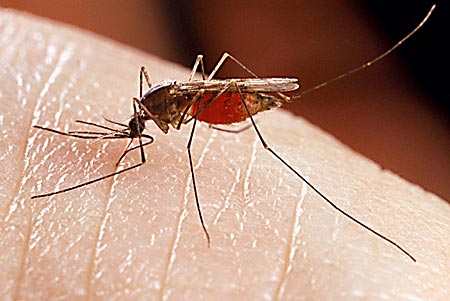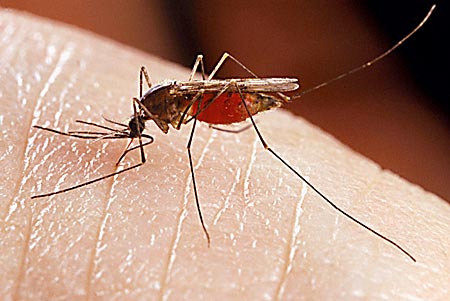
Malaria is one of the world’s deadliest diseases: it infects hundreds of millions of people every year, and kills about half a million, most of them under five years of age.
There is no vaccine. Experts agree that an effective vaccine could transform how we deal with the disease, potentially saving millions of lives. Now, researchers at the University of Maryland School of Medicine (UM SOM) are testing a malaria vaccine that has shown success in early tests.
They recently started a Phase 1 trial of the vaccine to test its safety and efficacy, in a place where malaria is common.
The trial, which will test the PfSPZ Vaccine, began last month in Burkina Faso, West Africa. The study is a joint project of the country’s National Center for Malaria Research and Training and the UM SOM Institute for Global Health (IGH).
The trial is a follow-up to successful clinical trials conducted at the UM SOM Center for Vaccine Development in Baltimore. A study by the same group of researchers, completed earlier this year, found that the vaccine protected against malaria infection up to a year after vaccination.
The vaccine was originally developed by Sanaria, a biotech company based in Rockville, Maryland. The current trial is funded by the U.S. National Institutes of Health (NIH).
“This trial will tell us a lot about how the vaccine works on the ground, in a place where malaria is a real problem,” said Matthew B. Laurens, associate professor of pediatrics at the UM SOM and IGH, who is co-leading the study. “If the vaccine can work here, it has the potential to help reduce the terrible harm malaria does around the world.” Dr. Laurens is director of the International Clinical Trials Unit in the IGH Division of Malaria Research.
Christopher Plowe, director of IGH, is also co-leading the trial. The study will be the first to test the highest dose of the vaccine given so far, and will be one of the first to evaluate how it works against naturally-transmitted malaria in Africa. The higher dose is needed to overcome pre-existing immunity to malaria in regions where the disease is common. Preliminary testing suggests that it will be very effective at this dose.
Development of a malaria vaccine is crucial for malaria control and elimination. A vaccine would complement existing tools against malaria, such as insecticide-treated bed nets, post-infection medical treatment, and preventive therapy in pregnant women. “By itself, a vaccine won’t end malaria,” said Dr. Plowe. “But an effective vaccine could get us there a lot faster.”
The trial will enroll 112 adults, and will continue through 2018. It will examine four different doses of the vaccine to see if they are safe. If no safety concerns are identified, an additional 80 adults will receive the highest dose to examine both its safety and efficacy against naturally-transmitted malaria over two years.
In recent years, funding for the clinical development of the vaccine has been provided by the Malaria Vaccine Initiative of PATH, the Bill and Melinda Gates Foundation and NIH.
###
Media Contact
David Kohn
[email protected]
410-706-7590
@ummedschool
http://medschool.umaryland.edu/
The post Researchers begin promising malaria vaccine trial in Burkina Faso appeared first on Scienmag.





